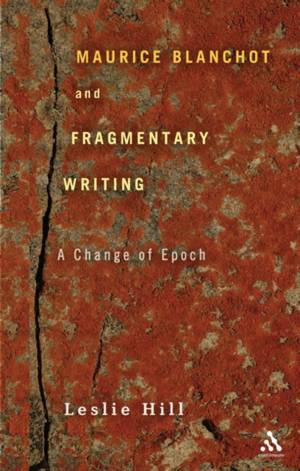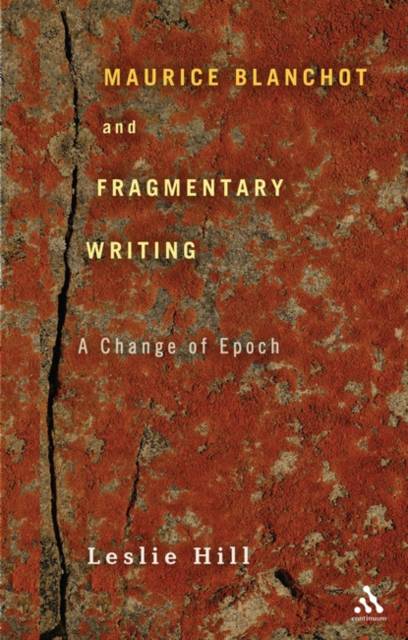
- Afhalen na 1 uur in een winkel met voorraad
- Gratis thuislevering in België vanaf € 30
- Ruim aanbod met 7 miljoen producten
- Afhalen na 1 uur in een winkel met voorraad
- Gratis thuislevering in België vanaf € 30
- Ruim aanbod met 7 miljoen producten
Zoeken
€ 98,45
+ 196 punten
Uitvoering
Omschrijving
Writing in fragments is often held to be one of the most distinctive signature effects of Romantic, modern, and postmodern literature. But what is the fragment, and what may be said to be its literary, philosophical, and political significance? Few writers have explored these questions with such probing radicality and rigorous tenacity as the French writer and thinker Maurice Blanchot.
For the first time in any language, this book explores in detail Blanchot's own writing in fragments in order to understand the stakes of the fragmentary within philosophical and literary modernity. It attends in detail to each of Blanchot's fragmentary works (Awaiting Forgetting, The Step Not Beyond, and The Writing of the Disaster) and reconstructs Blanchot's radical critical engagement with the philosophical and literary tradition, in particular with Hegel, Nietzsche, Heidegger, Heraclitus, Levinas, Derrida, Nancy, Mallarmé, Char, and others, and assesses Blanchot's account of politics, Jewish thought, and the Shoah, with a view to understanding the stakes of fragmentary writing in Blanchot and within philosophical and literary modernity in general.Specificaties
Betrokkenen
- Auteur(s):
- Uitgeverij:
Inhoud
- Aantal bladzijden:
- 400
- Taal:
- Engels
Eigenschappen
- Productcode (EAN):
- 9781441166227
- Verschijningsdatum:
- 5/07/2012
- Uitvoering:
- Paperback
- Formaat:
- Trade paperback (VS)
- Afmetingen:
- 140 mm x 216 mm
- Gewicht:
- 589 g

Alleen bij Standaard Boekhandel
+ 196 punten op je klantenkaart van Standaard Boekhandel
Beoordelingen
We publiceren alleen reviews die voldoen aan de voorwaarden voor reviews. Bekijk onze voorwaarden voor reviews.







